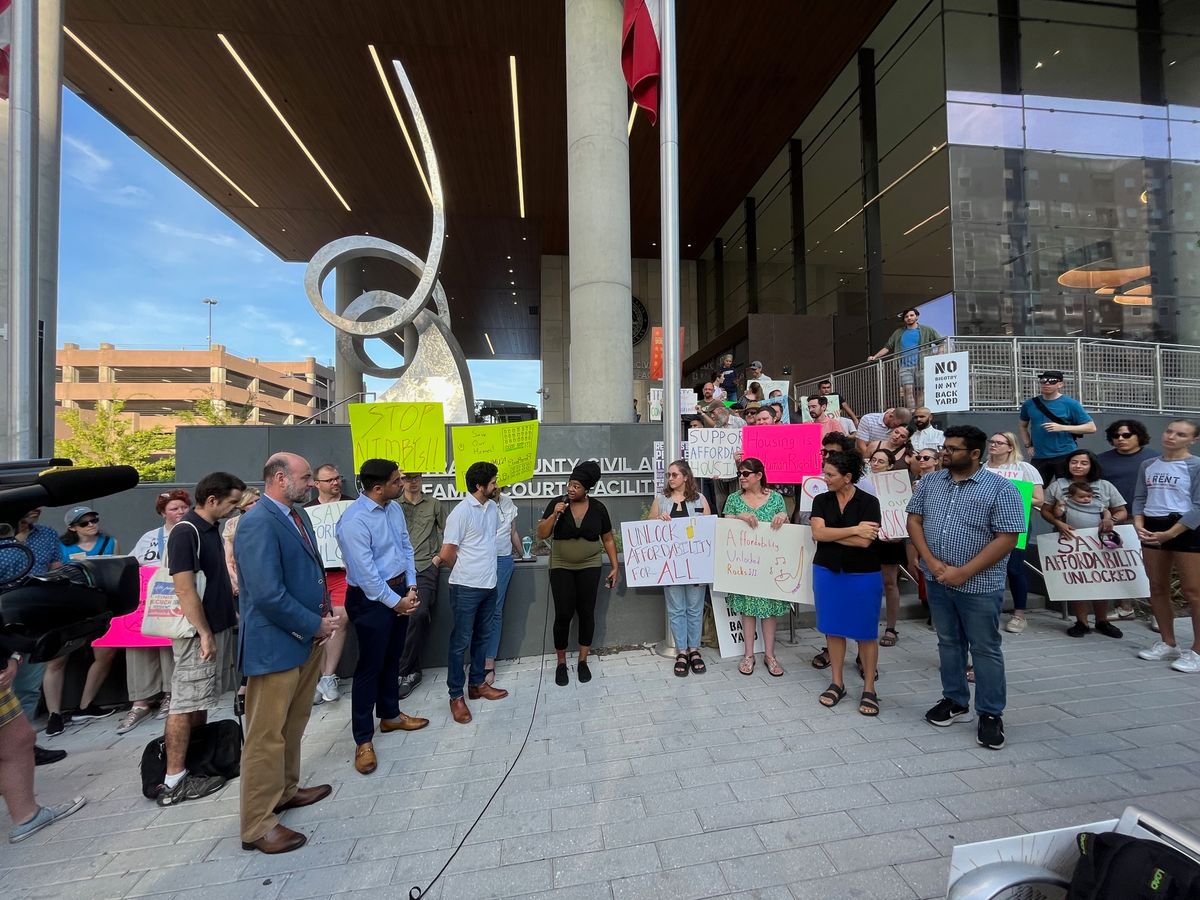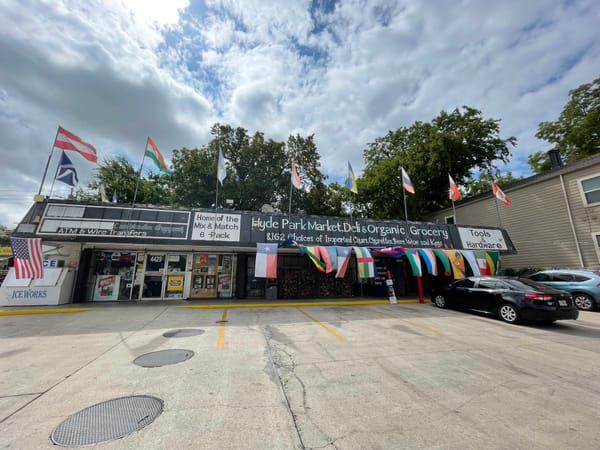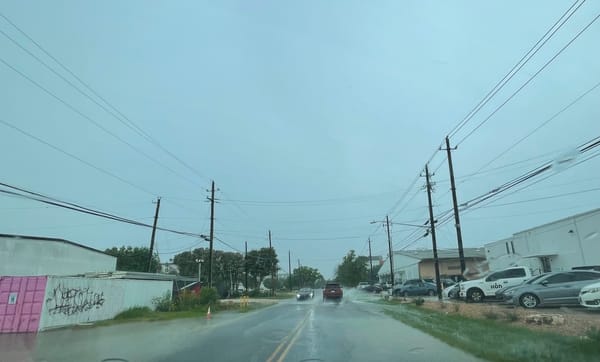The pro-housing rally
The implications of the NIMBY challenge could be very big and very weird.

A hearing on a legal challenge to a series of zoning reforms has been postponed, but the pro-housing rally outside of the courthouse went on as planned, attracting dozens of activists and a few elected officials.
The most notable guest was Congressman Greg Casar, the author of Affordability Unlocked, a 2019 ordinance that exempted low-income housing projects from a variety of regulations and is described by affordable housing providers as a major to boost to the construction of income-restricted housing.
Casar recalled how "small" the pro-housing movement had felt when he began serving on Council in 2015. At the time, he said, just relaxing the rules on granny flats was a major political battle.
"But now this movement has grown," he said, applauding the activists and public for "electing pro-housing champions" like Council members Chito Vela and Zo Qadri, who were standing next to him.
He drew a parallel between the legal tactics of local housing opponents and the national conservative movement. Both have turned to the courts to advance an agenda for which there is little public support.
AU, he noted, was approved unanimously by Council and in the past four years had helped create "homes for over 7,000 families."
Other speakers included Rebecca Stone, assistant director of the Guadalupe Neighborhood Development Corporation, an affordable housing provider, and Nicholette Lindsay, a military veteran who at one point had to seek shelter at the Salvation Army with her children after losing her job but was fortunate enough to finally get connected with an apartment at an affordable development.
AU is one of the four reforms that anti-density group, Community Not Commodity, is asking a judge to invalidate, alleging that it violates state law because it was adopted without residents receiving written notification in the mail of the pending code change.
The provision of state law that CnC cites was for years widely interpreted to only require written notice to residents near a property that was proposed for rezoning. In 2020, a judge agreed with CnC that notification is also required as part of a comprehensive, citywide rezoning, which Council at the time was poised to approve. The ruling also suggested that citywide rezonings would be subject to the "valid petition," which in a typical zoning case means that Council cannot approve the rezoning with less than nine votes if adjacent property owners oppose it. To this day it's not quite clear how a valid petition would work in a citywide rezoning.
What CnC hopes the courts will do is expand upon the 2020 ruling by deciding that any land use regulation, even if it doesn't involve a rezoning, is subject to notification and the valid petition.
The implications of such a ruling would be radical, perhaps more so than even the plaintiffs recognize. If an ordinance that was adopted four years ago can be undone for failure to provide notification, then what about every other change to the code that's been made since its adoption 40 years ago? What about the code itself?
What should I do with my grass?
Until recently I assumed that allowing the grass in my front yard to turn into hay was a glaring indication of my environmental and ethical superiority. But then I read this in the Statesman last week:
It may seem sacrilegious to turn on your sprinklers or whip out a hose in the middle of one of the hottest summers ever, but you should water your grass an inch a week, said Denise Delaney, acting education program manager for Austin Watershed.
"You should definitely keep watering because it's so dry and hot," Delaney said.
A good way to measure out an inch, if you're using an automatic system like sprinklers, is to put an empty tuna can in your yard and wait for it to fill up, Delaney said. Once it's full, shut the water off. If you're using a hose, make sure the lawn gets a good soaking, Delaney said.
I was surprised to see local officials encourage us to nourish what other states and cities are now treating as an environmental scourge. Nevada has banned "nonfunctional" turf in a variety of settings and offers rebates to homeowners who replace their grass with a more "drought-resistant" option. The NYT explained the reasoning:
The move to replace thirsty, sprinkler-fed grass with drought-tolerant, drip-irrigated plants can reduce water use by up to 70 percent, the water authority says. The savings are even greater if the grass is replaced by artificial turf, which is favored by some.
So I followed up with the Watershed Protection Dept myself. My questions: Is there any broader environmental benefit to watering your lawn? Given the (changing) climate, does it even make sense for people to have grass lawns?
The response I got from WPD staff:
Turfgrass can help with the urban heat island effect and prevent erosion. It has some landscape benefits in providing play areas for children and pets. Ecologically, turfgrass is preferable to bare dirt, gravel, concrete or artificial turf. Watershed Protection would recommend limiting the amount of turfgrass in your yard.
Landscapes with trees and native plants have more environmental benefits than turfgrass. These more complex native landscapes will provide shade and wildlife habitat and use less water than turfgrass. In drought conditions, residents should prioritize watering their trees with a soaker hose over watering their grass.
Hmm. I don't know what to make of this. If you have any insight into who is right, do share.





